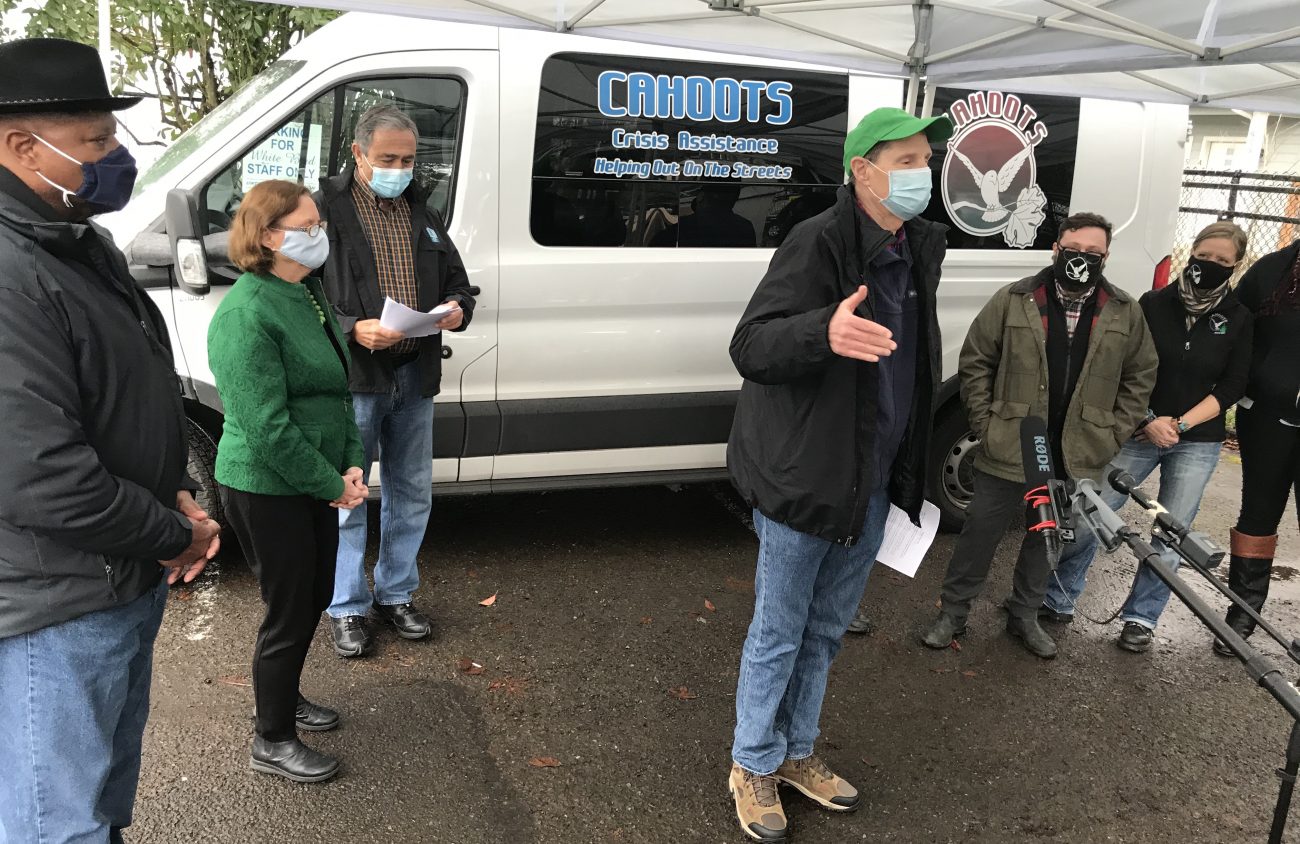On March 10, the House passed the COVID-19 relief package without a single Republican vote. In the legislation in the American Rescue Plan on the way to President Joe Biden’s desk is a provision proposed by Sen. Ron Wyden, intended to provide money to incentivize establishing mobile crisis intervention services throughout the U.S.
Section No. 9813 of the bill is “State Option To Provide Qualifying Community-based Mobile Crisis Intervention Services,” which will grant states increased Medicaid funding for three years to provide community-based mobile crisis services to individuals experiencing a mental health or substance use disorder. The provision lays the groundwork for what Wyden had proposed in his Crisis Assistance Helping Out On The Streets (CAHOOTS) Act.
For more than 30 years, CAHOOTS has provided mobile crisis intervention 24 hours, seven days a week in the Eugene-Springfield area. The CAHOOTS model is designed to be an alternative to the police. Each team consists of a medic (nurse or EMT) and a crisis worker, according to CAHOOTS’ website.
Wyden’s office tells Eugene Weekly in an email that what passed in the legislative package is a down payment on the crisis intervention model that will let states begin setting up CAHOOTS-like programs. The federal government would pay for 85 percent of the programs through Medicaid. Wyden’s proposal asks for 95 percent funding.
When Wyden visited CAHOOTS Feb. 19, he said users of these programs are typically low-income, so using Medicaid funding is appropriate — especially since Medicaid is the largest funder of mental health services. Since the American Rescue Plan went through the budget reconciliation process, Republicans couldn’t use the filibuster to kill it.
According to the section’s language, the state would implement and administer the services. It would also conduct an evaluation of its impact on emergency room visits, involvement of law enforcement in mental health and/or substance use events, diversion from jails and other outcomes.
The language added that crisis teams must be trained in trauma-informed care, de-escalation and harm reduction, as well as provide or coordinate transportation to help individuals to reach their next step in care. The services have to be connected to regional hotlines and emergency medical service systems but not operated or affiliated with state or local law enforcement, though coordination is OK.
The CAHOOTS bill was first introduced by Wyden in 2020 after the killing of George Floyd by a Minneapolis police officer, but because the Senate was controlled by Republicans, the bill went nowhere. In 2020, Congressman Peter DeFazio also introduced a House companion of Wyden’s Senate bill.
As the funding for the CAHOOTS model moves forward, former Officer Derek Chauvin is going to trial for Floyd’s murder.
Wyden’s office says Wyden when the American Rescue Plan becomes law, he will work with the Biden administration to get the program off the ground and identify areas where additional legislative action is needed “to allow states and communities to successfully set up these teams. He is committed to making the state option permanent so states can reliably budget for these critical services.”
